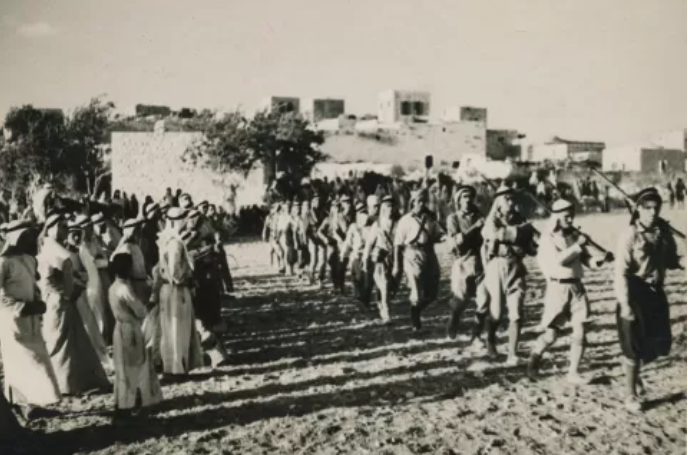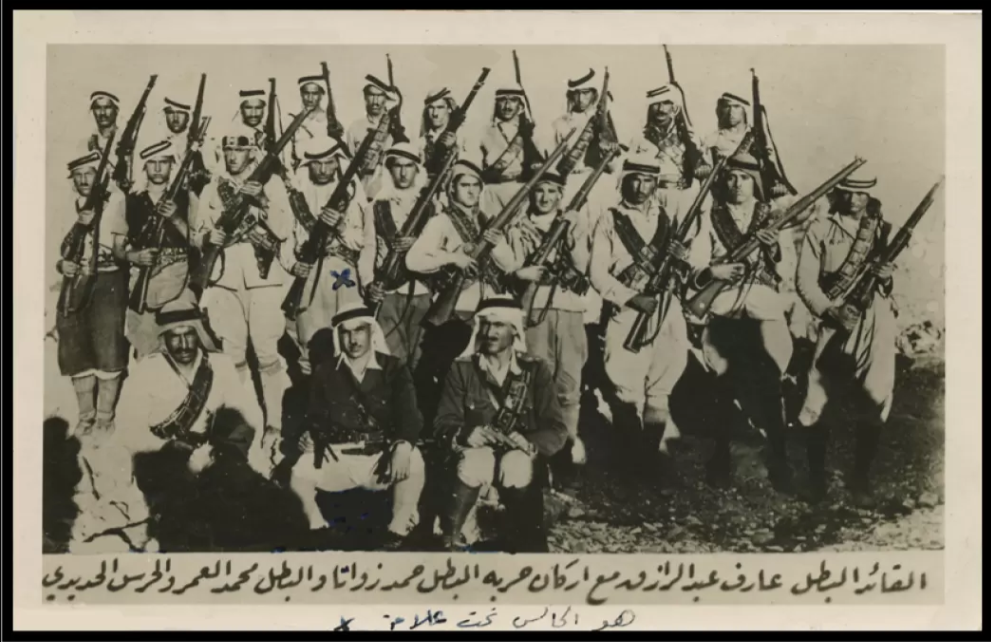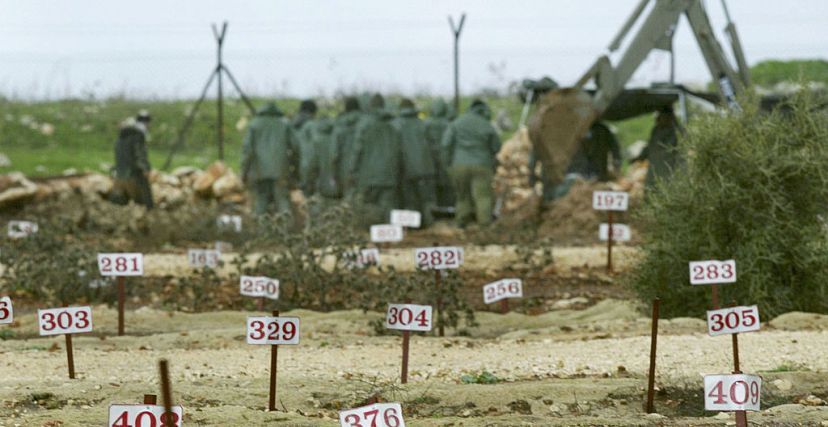Great Arab Revolt
When the 1936 Revolt began in earnest, Palestinians initiated a countrywide general strike against colonial rule. Though lacking means, they knew that military power alone would not pave the revolutionary path. Supportive social networks enabling prolonged steadfastness were vital.
After declaring their revolt and forming the Arab Higher Committee, Palestinians established local “National Committees” to address emerging problems. They worked intensely to assist people in cities and villages, even mobilizing subgroups as needed. For example, an aid committee secured and distributed donations.
The prolific Jerusalem committee contained subcommittees for automobiles, trades, merchandise promotion, the needy, lawyers, medicine, and more. Diverse funding sources included affluent urbanites, Arab government employees, international sympathizers, and farmers.
The Palestinians realized that without state funding, new financial sources were needed to sustain the revolution’s continuity and independence. To raise funds, they raided the Barclays Bank, seizing £5,020 pounds, and took £2,000 from a post office. Consequently, a committee overseeing fiscal matters formed to efficiently allocate these funds. The revolution’s high degree of organization enabled the leadership to support fighters and families by providing incomes and provisions. Full-time fighters received £1 to £6 per month, combatants £2, commanders £4, and assistants and lead commanders £6 and £9, respectively. Local committees voluntarily collected these contributions from town and village donors.

As the revolution expanded, in-kind donations also increased to alleviate poverty. Moderately prosperous groups, including merchants, vendors, sailors, drivers, blacksmiths, and sheep traders, contributed in their own way to the prevailing atmosphere. For example, some merchants in Nablus surrendered their store keys to the National Strike Committees for the duration of the strike.
The participation of many men in the revolution enabled Palestinian women to become a productive force. Punitive measures by the British further targeted and destroyed families’ food stocks, especially impacting rural women. To finance the rebels, rural women sold their bracelets to provide weapons. Women in cities utilized their family connections to collect funds, with women’s organizations in cities maximizing these efforts.
The Great Depression inflicted severe poverty upon large segments of society, necessitating heightened social solidarity to provide even basic needs. Medical committees offered free treatment to the poor, while homeowners and landlords supported the revolution by exempting tenants from rent.
Mohammed Yassin exemplified such solidarity by placing an ad in Filastin newspaper, offering to refund a month’s rent to tenants and deduct it from those who had not yet paid. He sacrificed 50 pounds in monthly rental income for the nation.
Thus, donations became a main feature of the revolution. Newspapers provided an important advertising medium to disseminate humanitarian efforts, from families hosting displaced families to food donations. The owner of Salanik Hotel donated 20 rooms, while the hotel’s coffee maker provided free drinks to refugees. Zeina Mohammed al-Qabbani advertised free obstetric services and care for the poor and disabled in the Jaffa district.

Newspapers offered a platform for people to publicize their contributions. Local committees conducted comprehensive surveys and divided cities into zones to ensure donations accessed all in need.
The Revolt saw a reciprocal exchange of assistance and compassion between Palestinian cities and countryside, and people of diverse social classes. This bridging of social divides infuriated the English, who viewed it as unprecedented.
In his report to the Minister of Colonies on July 16, 1936, the High Commissioner noted that aid and subsidies largely benefited only residents of towns and large villages. Farmers struggled to feed themselves yet still donated crops to assist townspeople. Charitable work frequently occurred through direct personal efforts independent of any institution. For instance, affluent families supported one or two impoverished families, and traders paid full or partial wages to unemployed workers. This crisis seemed to foster a strong sense of Muslim brotherhood and solidarity, allowing charitable organizations to focus elsewhere.
The interdependence and integration of
Palestinian forces proved highly effective in strengthening Palestinian resistance. This contributed to an intensification of Palestinian guerrilla operations in northern and central Palestine, increased the ranks of revolutionaries, and improved their organization. The Zionist movement was provoked and incensed, accusing the Palestinian revolt of receiving foreign support, though they had no evidence. In an article in Haaretz, Smilansky wrote about the collapse of hope and growing economic distress in Palestine.
Our hopes are shattered as if they were to be destroyed at home and outside the house. Every day there is distress and strangulation, either from the saboteurs or from the severity of the economic distress.”

The revolution started with unconnected groups of revolutionaries and fighters but evolved into a widespread resistance movement and collective struggle that benefited the people and nation. It diminished colonial authority and control, thereby capturing the Arabs’ imagination. Palestine’s need for Arab backing was more evident than ever. Iraqi volunteers vied with Fawzi al-Qawuqji’s trained military force. Entering Palestine, they seized the Triangle area of Nablus, Tulkarm, and Jenin. Arab capitals saw huge protests and raised funds for Palestinian national committees via activities and concerts celebrating the revolution.




